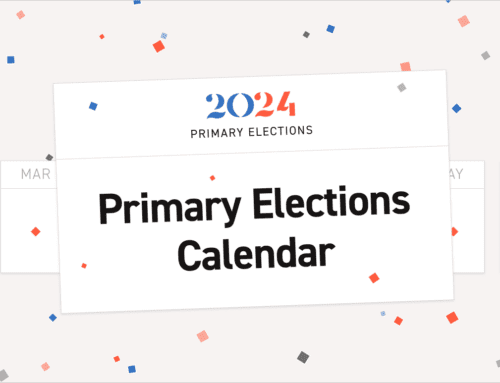

2 more Republican states abruptly depart from interstate voter list program
ERIC helps organizations maintain their voter rolls by issuing reports on voters who may have moved either within the state or between member states, died, or potentially voted in two different states. | M. Spencer Green/AP Photo
Ohio and Iowa became the latest Republican-led states to signal they would be pulling out of a bipartisan interstate voter program, throwing the organization into an even more uncertain future after a critical board meeting.
“I cannot justify the use of Ohio’s tax dollars for an organization that seems intent on rejecting meaningful accountability, publicly maligning my motives, and waging a relentless campaign of misinformation about this effort,” Ohio Secretary of State Frank LaRose wrote in his letter starting the withdrawal process on Friday.
They are the sixth and seventh Republican-led states to drop out of the Electronic Registration Information Center — ERIC — over the last year, joining Florida, West Virginia, Missouri, Louisiana and Alabama. Other states could soon be on the way as well.
The exodus of GOP officials from the once-uncontroversial group comes as some prominent Republicans — most notably former President Donald Trump — have publicly attacked it, falsely saying it is a liberal plot to control the county’s voter rolls. Most of the departing states have not echoed Trump’s claims, instead citing disagreements about the governance of the organization, but defenders of ERIC say their complaints are only a pretense to exit the organization.
But the bottom line is that these Republican-led states have turned against an organization they once hailed as a solution to cutting down on voter fraud.
The decision from the states to leave the partnership came shortly following a meeting of ERIC’s board on Friday, where member states voted on significant changes to the governance of the organization.
That meeting resolved one point of contention — the role of non-voting members within the organization — but resulted in a stalemate over disagreements on what members could do with the data collected and distributed by ERIC.
Broadly, ERIC helps organizations maintain their voter rolls by issuing reports on voters who may have moved either within the state or between member states, died, or potentially voted in two different states, requiring members to conduct list maintenance with that information. ERIC also produces data on people who may be eligible to register but haven’t, and requires states to contact those would-be voters.
Some Republican election officials believe the latter requirement, in particular, as superfluous and a waste of resources. LaRose had previously proposed changing ERIC to allow states to choose to use ERIC data “a la carte” — letting member states pick and choose what they want to do with the data produced by the organization — and a proposal to change the organization’s bylaws to allow for that failed at Friday’s meeting. A second vote that would tie the requirement to contact potential eligible voters to a report that helps states catch cases of double voting — meaning states could opt to do either both or neither — also failed.
Both proposals got a majority vote, with the latter having more backers. But ERIC bylaws require 80 percent of the membership to agree to make changes
Iowa Secretary of State Paul Pate said the failed votes on Friday don’t “allow each member to do what’s best for their respective state.”
“Ultimately, the departure of several key states and today’s vote is going to impact the ability for ERIC to be an effective tool for the State of Iowa,” he said. “My office will be recommending resigning our membership from ERIC.”
Other states could follow. Alaska’s elections director has said during a legislative hearing earlier this month that the state may leave the organization, while Texas’ secretary of state has taken public steps to prepare her office for a withdrawal should the state drop out. (There is pending legislation in Texas to do as much.)
A spokesperson for the Texas secretary of state did not immediately respond to a request for comment on Friday. A spokesperson for the Alaska lieutenant governor’s office — the state’s chief election official — did not have an immediate comment on Friday’s meeting.
Simon, the Minnesota Democrat, told POLITICO that he and other ERIC supporters had been reaching out to Republican-led states on Friday afternoon to urge them to stay in the partnership and continue to negotiate.
“I would urge any state who is disappointed with the outcome of today’s board meeting to hit the pause button,” he said in an interview.
Not every Republican-led state is looking to leave. Georgia Secretary of State Brad Raffensperger has been a vocal defender of ERICover the last month, and his office projected hope that states would remain in the organization following a vote at Friday’s meeting that removed non-voting positions from the group’s board, another flashpoint.
“Hopefully this will allow states to stay and help keep clean voter rolls across the nation,” Gabriel Sterling, a senior official in the Georgia secretary of state’s office, tweeted shortly after the meeting.
Utah Lt. Gov. Deidre Henderson, the Republican chief election official of her state, also voiced support for ERIC on Friday. “As a founding member, ERIC has served Utah and its member states well,” she said in a statement to POLITICO, calling for “compromise between Republican and Democratic member states.”
“I’m hopeful we can find a path forward to keep and attract members,” she added.
And crucially, South Carolina — a state some members were concerned about after Friday’s meeting — said it had no intention of departing.
“South Carolina does not currently have plans to leave ERIC,” John Michael Catalano, a spokesperson for the South Carolina state election commission, wrote in an email. “Despite its flaws, ERIC remains a valuable and (currently) irreplaceable tool that allows states to remove unqualified voters from the voter registration rolls.”
Remaining members lamented the organization’s departures, with several saying that a state leaving ERIC makes the organization’s data worse for everyone: “The more members that leave, the less valuable and effective the organization,” Catalano noted.
And others bemoaned the departures as a bad sign for the culture of cooperation surrounding elections. Maine Secretary of State Shenna Bellows, a Democrat, described the work ERIC does as “technical and boring” but an important part of the “backbone” of American elections.
“What we’re seeing is the product of disinformation,” she said in a Friday interview. “It has made ERIC a lightning rod in some circles.”









